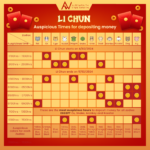
Is living in Singapore expensive? It comes with a pretty steep price tag to live in the Lion City. According to the Economist Intelligence Unit’s (EIU) Worldwide Cost of Living (WCOL), Singapore ranked as the most expensive city to live in, equivalent to New York City. We’re talking about rising housing costs that can make your eyes water, transportation costs that can make you question every taxi ride, essential expenditures that seem to vanish from your income, and let’s not forget the substantial costs of education and childcare.
Factors Influencing the Cost of Living:
- Housing Expenses: Renting vs. Owning Property
Global recession, land scarcity, and depletion of natural resources are also to blame for the housing price increases that Singapore has experienced. Renting or owning a property in Singapore depends on financial situation, goals, and preferences, as housing costs are a significant component of living expenses. Singapore’s housing market has seen a 7.5% Year-over-year (YoY) growth in June 2023, driven by limited land availability and high demand. The average house cost is S$2,080,533, with private residential property prices increasing by 97% and HDB resale flat prices increasing by 116%.
Housing Expenses Fear Factor: 8/10
- Transport Costs: Public Transportation Efficiency vs. Private Vehicle Ownership
Petrol costs S$300+ per month, along with parking, insurance, road tax, and maintenance for a private vehicle. Owning a car in Singapore is exorbitantly costly due to the infamous Certificate of Entitlement (COE) that currently costs 140k SGD alongside other taxes and road restrictions. However, Singaporeans have a fantastic alternative in its highly efficient public transport system, which is convenient and heavily subsidised. It costs just under S$4 to travel from one end of the island to the other end via MRT / Buses.
Public Transport Expenses Fear Factor: 3/10
Private Transport Expenses Fear Factor: 10/10
- Essential Expenditures
Besides housing expenses and transport costs, Singapore’s cost of living includes essential expenditures: 1) Healthcare, 2) Groceries and Utilities. The government controls these costs to a high extent, and household income gradually subsidises them.
- Healthcare
In recent years, the cost of healthcare has grown more and more important over recent years, raising concerns. According to national healthcare data, the medical inflation rate in 2022 rose to 2.18% compared to previous years. Despite the high standard of living, safety, and cleanliness, the cost of services and the maintenance of publicly accessible spaces like hospitals remains high.
Healthcare Costs Fear Factor: 6/10
- Groceries and Utilities
Due to limited agricultural land, Singapore imports more than 90% of its food. Moreover, recent financial pressures have arisen due to the introduction of a progressive 2.5% annual water price increase. When it comes to food, hawker centres scattered throughout the heartlands provide value for money, offering quality meals that can sometimes make headlines. It makes sure Singapore has no shortage of high-end food options. While we count ourselves lucky with lower personal income rates, Singapore’s cost of living harbours a hidden financial challenge – the Goods and Services Tax (GST). This subtle burden, fueled by inflation and a strong currency, stealthily inflates living expenses.
Groceries and Utilities Cost Fear Factor: 7/10
- Education and Childcare Expenses
Education and childcare expenses are another significant factor. In the realm of education, Singapore offers an enviable advantage with its public schools (excluding tertiary institutions), renowned for their excellence and accessibility, typically nearly free of charge for citizens and permanent residents. Nevertheless, even in this haven of learning, there are a few financial nuances to consider. However, when making informed decisions about education financing and planning for your children’s future, consider the insights and guidance that AutoWealth can provide to help navigate these financial aspects effectively.
Education and Childcare Expenses Fear Factor: 6/10
Conclusion
So, Is Singapore a budget-buster for residents? Well, it’s undeniable that residing here can make a dent in your finances. Living in Singapore can strain your budget due to soaring housing costs, unexpected transportation expenses, essential expenditures that subtly erode your income, and the substantial expenses linked to education and childcare. But here’s the intriguing part – AutoWealth doesn’t merely highlight the costs; it provides you with insights to make well-informed financial decisions, ensuring that you’re confident and wise in your approach to Singapore’s fiscal landscape.
“The intelligent investor is a realist who sells to optimists and buys from pessimists.”
– Benjamin Graham





















